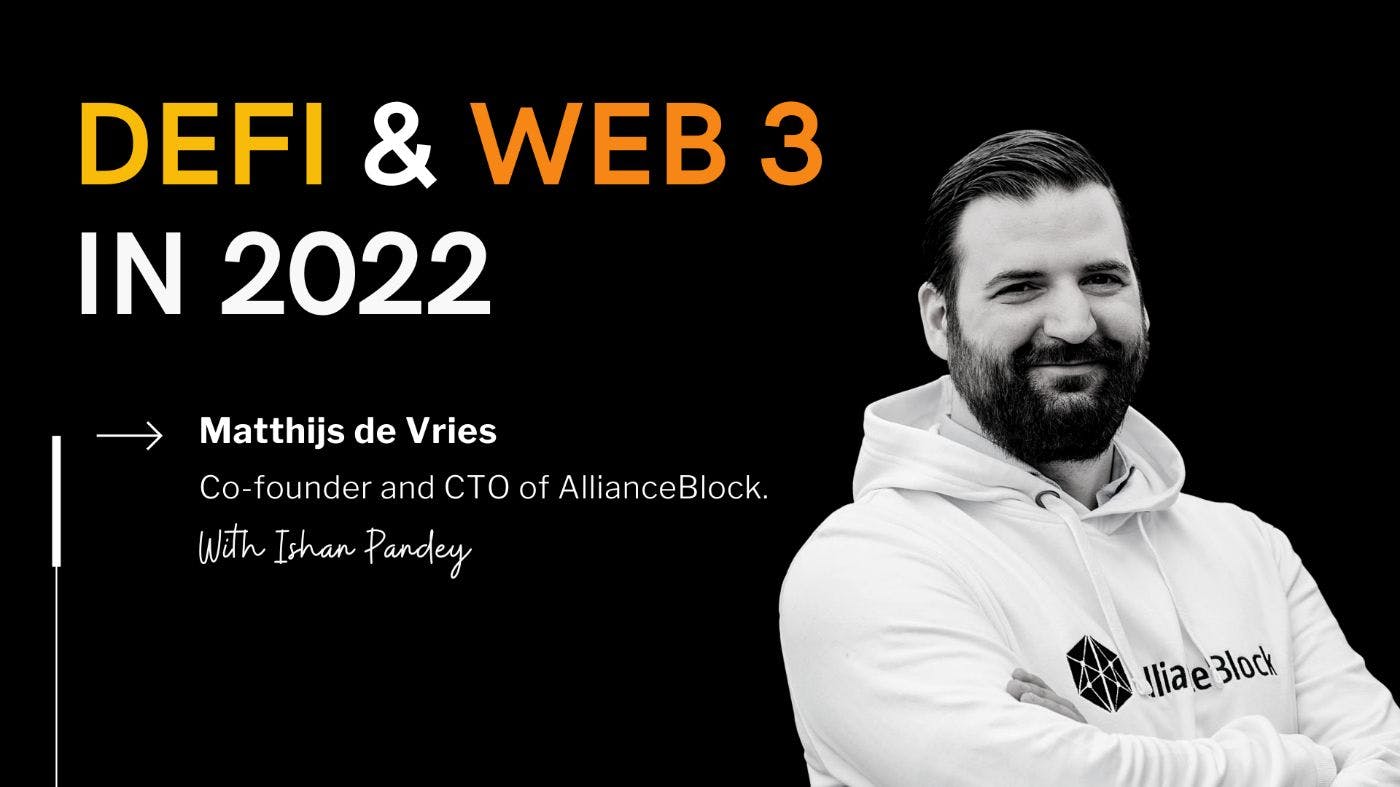21,153 reads
Understanding the Future of TradFi and DeFi with AllianceBlock
by
October 26th, 2022
Audio Presented by

Building and Covering the latest events, insights and views in the AI and Web3 ecosystem.
Story's Credibility



About Author
Building and Covering the latest events, insights and views in the AI and Web3 ecosystem.
